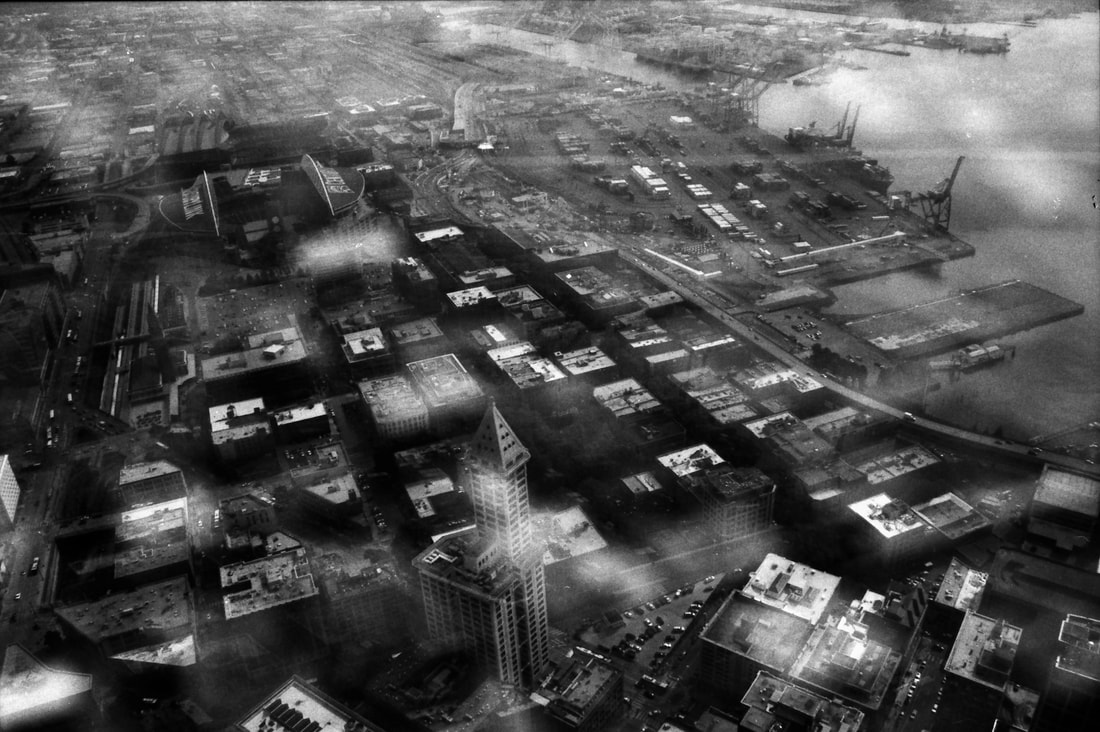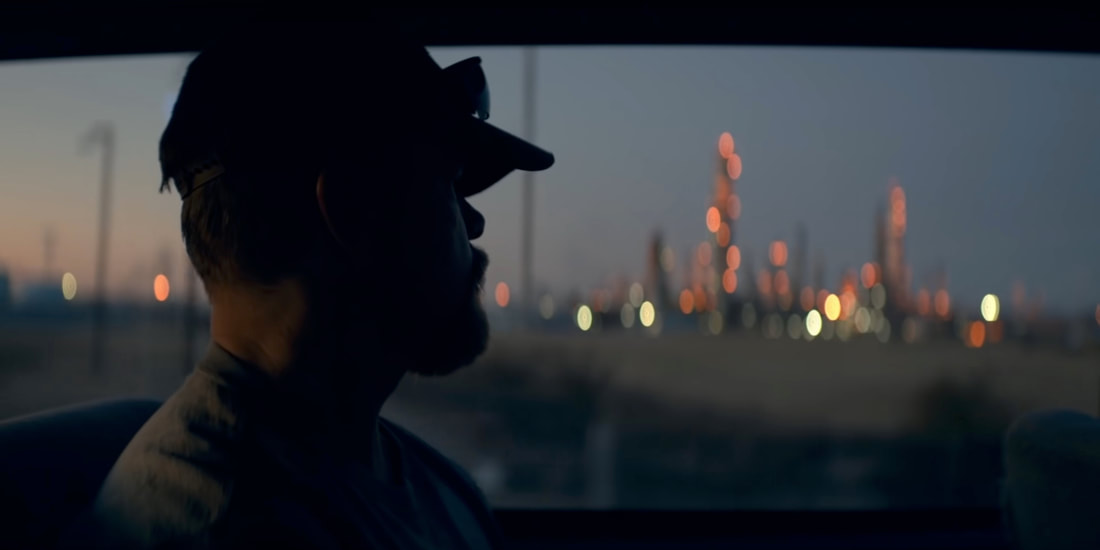|
Recently a woman yelled up toward me, "there's a guy smoking crack in the back of the bus! Tell him to get off!"
To which I immediately replied, into the microphone and at the young twentysomething man furtively kneeling over in the back bench, "okay my buddy in the back, we can't be doin' that in here. Gotta take it outside. I know it's hard, but outta respect for everyone else in here, there's no smokin' crack on the bus. Yup, that's one of the rules..." And so on. The woman left us; it was her stop. After she had, the man stood up and earnestly said, entirely convincingly, that "I was just picking up some trash, that's all! God. I don't know why she was picking on me like that. Probably just 'cause I look like a bum or something." I stared at him. Whom do you believe, in a moment like that? I had nothing to go off of. I had to admit I hadn't seen him smoking anything. Between the two, his words seemed more plausible to me, uttered with the heartfelt indignation of being falsely accused. Also, the woman was gone, and I needed to get along with who's still on the bus. Which meant this guy. After an awkward pause I said, not through the mic anymore but just with a friendly raised voice, the better to be more personable, "I'm sorry, dude. I misunderstood the situation. I apologize." "Naw bro, you're cool. You're always good to me." "Thanks man. I didn't mean to embarrass you, I's just trying to figure out..." "Oh it's totally cool. People're always pickin' on me. You're one of the good ones, man, seriously. You're always respectful to everyone. We appreciate it." He got off at the next stop, by the now-defunct encampment in Lake City. Immediately after he did, another person who'd been sitting in the back now piped up. This young man, a hospital employee and regular rider on his way home, said, "he was smoking crack. I saw him loading his pipe and everything." "Shoot. Thanks for letting me know. Well. Now I feel like an idiot! I have no idea what's going on from way up here!" "Oh no, it's whatever!" What compels people to distort the truth in their favor? Everyone does it a little, but there are a special insecure few who prey on the gullible beliefs of others. We might label this as cruel; I'd prefer to call it lonely. Imagine the pressure of trying to get by in a world of peers who seem to have it together, who don't give you their attention. I know I'm flawed, you may think in that situation, but how can I hide that from the world? Youngsters make mistakes like the rest of us, only they don't know it's okay to admit it. They don't know everyone else is imperfect too, and there's no need to try so hard. Thank goodness our brains dwell on the positives of childhood... because we forget how hard it is. Do you remember the stress, the anxiety of pretending you've got it together when you don't, searching for ways to conceal your embarrassment or shame? When do we discover we don't need to do that? I believe the young man was so convincing in defending himself because a part of him really wanted it to be true. We build up lies to cover up our embarrassments, and his lies had more adamant conviction than the two other people's truths. Why? Perhaps because he had a bigger stake. He needed those listening to believe him, because if we believed him we would be unable to perceive his guilt and shame. And I'm as gullible a person as you'll find; since I'm always trying for kindness, I assume others are too. I trust in the goodness of people, and though I've suffered greatly on a few occasions as a result, I'd still conclude it's brought me more good than harm. My book and blog wouldn't even exist if I was darkly suspicious, assuming the worst in everyone. How would I have reacted if he'd told the truth? I'd have felt gladdened by the courage of his vulnerability, closer rather than further from him. But how would he have felt, I wonder? It makes sense to hide his illegal behavior, but I like to imagine him trusting I'd still treat him as human; discovering with relief that he didn't have to pretend in order for me to respect him. Is there a greater anxiety than projecting a false version of yourself to others as a way of hiding from your real problems? I think he felt more accosted by the fact of someone designating him as inhuman, as a failure. When he told me he was innocent, he wasn't trying to convince me he was drug-free so much as human, real, unique, more than a statistic. And he knew from previous rides with me that I understood that about him, no matter his current circumstances. Our subsequent exchange of respect was as truthful as anything else spoken in those five minutes, and perhaps more resonant. I hope he felt appreciated by me. We make the best decisions we can with the information we have. Which of today's addicted souls will live long enough to transition to a different modus of problem-solving? Who will render today's misdeeds a distant regret, paved over by insight and better experience? I'm hopeful he'll be among that lot. As I parked my bus and headed home, the moment from the day I carried most gladly in my pocket wasn't the reporting woman or clarifying hospital worker but the young man's smile, the smile of someone appreciating kindness and doing their best in the situation they've been handed, trying, however imperfectly, to get through the day. You'll make it, friend. You still had your spark in the lowest moments. I saw it. I'll see you down the road.
0 Comments
There is a bewilderment that sets in with age. We look around ourselves in mild confusion, heavy from invisible blows, unable to summon the energy to do much more than wonder, and hopefully marvel. What world is this that swirls around me, and when did it replace the one I thought I knew?
It sometimes happens that older people, in having lived for a longer time, are more likely to have made mistakes and therefore be forgiving of others who have misstepped also. To be understanding. Sometimes they're more prone to recognize a person is greater than their worst moment, and that people have the capacity to grow, learn, improve. Certain other folks, sometimes younger, have the privilege of knowing none of the above. They have the luxury of being unforgiving. They can be didactic in their morality, without compromise, and not know their error. I've done this. But life is not so clear-cut. Life is the trick of accepting multiple truths, and holding them in one hand. There was a time when I would have looked down at Matt Damon's character in Stillwater (2021, in theatres now) and judged him, written him off as another Oklahoma redneck, defining him by his reductive political views, prejudices, and lack of culture. I can no longer do that. The simple fact is that life is more complicated. As director Tom McCarthy points out (more below) about his film's protagonist and others like him, many of these people don't spend a lot of time thinking or talking about politics. That's often more of an urban pastime. The immediate concerns and realities of America's rural poor are the ones we forget about when we chastise them. Also, if the journey of one's twenties is largely the journey of coming to terms with one's own insignificance, I, as someone in my mid-thirties, am simply unable to consider myself worthy of judging others. Who am I to deem what "culture" is, or assert my definitions of better and worse on another's experience? We grow when we try to understand people, not when we demonize them. We begin to see they are like us: flawed and confused and trying to get by. Doing their best with what they have. McCarthy's excellent new film, Stillwater, has no political axe to grind and sees Damon's protagonist as merely the product of his environment that he is, trying to negotiate a world larger than he ever imagined. He thinks he can fix everything. McCarthy deftly interweaves the bewilderment that comes with aging described above with the different and humbling confusion of realizing one isn't the hero one always thought oneself to be. Casting Matt Damon is a clever move: he brings a baggage of extreme competence from other films. We assume he'll win. But his– perhaps our– notions of American individualism, exceptionalism, and moral authority are in for a wakeup call. We are left finally at the film's end with a moment of reflection I find both crushingly real and strangely optimistic. It's never too late for an awakening, and they often happen of their own accord, almost in spite of ourselves. This is something to be thankful for. --- Avoid the film's trailer, which amusingly misadvertises it as a thriller! Check out these interviews with the director instead:
|
Nathan
Archives
July 2024
Categories |


 RSS Feed
RSS Feed
